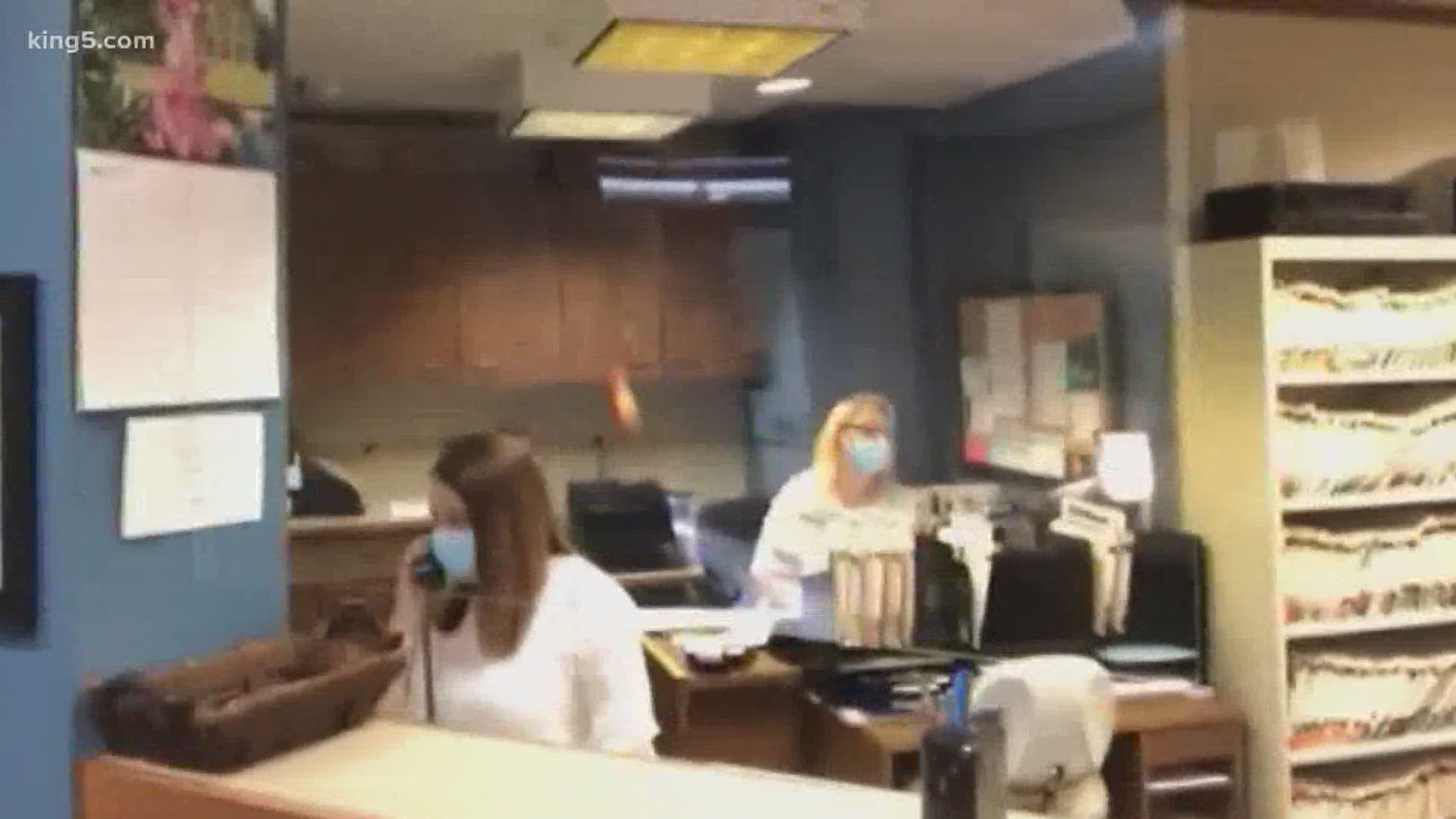SEATTLE — The Washington State Dental Association told its 4,400 members that it anticipated non-urgent dental care could resume on Monday morning.
By Monday afternoon, Governor Jay Inslee issued a proclamation for the reopening of health care services including dental offices, assuming they can comply with the protocols necessary to keep everyone healthy.
Dr. Dennis Bradshaw showed the three-by-four sheet of plexiglass suspended from the ceiling at the reception desk. It is just one of many changes the Pasco dentist made.
After being closed for eight weeks, Dr. Bradshaw said he is thinking of his patients who have not been able to get care.
"You're concerned that something that was an intermediate-sized cavity is now much larger with possible nerve involvement," Dr. Bradshaw said.
In Lacey, Anastacia Harrell is a dental hygienists, and she says she this virus has her thinking of the patients too.
"I do have some definite concerns, just mostly for my patients," said Harrell.
"Once it's aerosolized... it can sustain up in the air for about three hours. So the first patient that comes in and may emit those viral particles, we dismiss them, they leave the office, and the next patient walks in. They're then exposed to the prior patient's viral particles which is a huge concern for me and for my patients," Harrell continued.
The Centers for Disease Control and Prevention offer interim guidance for dental settings during the COVID-19 response.
On the CDC's website, it states, "COVID-19 is a new disease and we are still learning about how it spreads and the severity of illness it causes. The virus has been shown to survive in aerosols for hours and on some surfaces for days. There are also indications that patients may be able to spread the virus while pre-symptomatic or asymptomatic."
"Until the science can catch up with this virus, there's a lot more that we don't know than we do know," said Dr. Bradshaw. "If you're concerned with aerosols, then my hygienists are not going to use the caviTron is the technical term for it, an ultrasonic that vibrates and sprays water. They're going to do hand instrumentation just like they were trained to do when they went to school."
When asked what protocols would need to be in place before Harrell felt comfortable going back to work, she said clear guidelines are obviously needed.
Dr. Bradshaw, who is also the WSDA president, has looked at the American Dental Association's recommendations and worked with the state to develop guidelines.
"I can't force anybody to do something they don't want to do and they have rights. I have responsibilities and rights as well. Someone doesn't feel comfortable, then that's up to them," said Dr. Bradshaw.
Dr. Bradshaw says what he is doing is allowing one person in the reception area at a time. His office is practicing social distancing. He added that patients are prescreened on the phone before the appointment, and screened again upon arrival. The process includes taking the patient's temperature. The office will be sanitized between patients, and PPE will be used.
KING 5 viewers are already noticing some dental offices charging a PPE fee. One wrote, "my periodontist is charging $34 for PPE in Olympia. Seems a bit excessive to me."
Securing PPE continues to be a focus for dental offices. WSDA was able to secure 300,000 masks, and is distributing the supplies to practicing dentists in the state free of cost.

